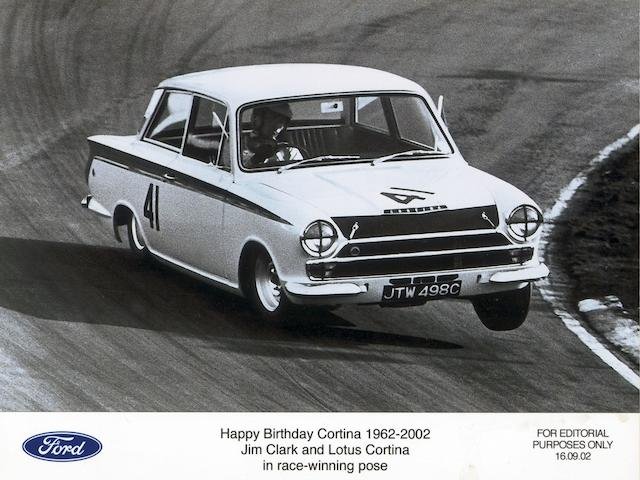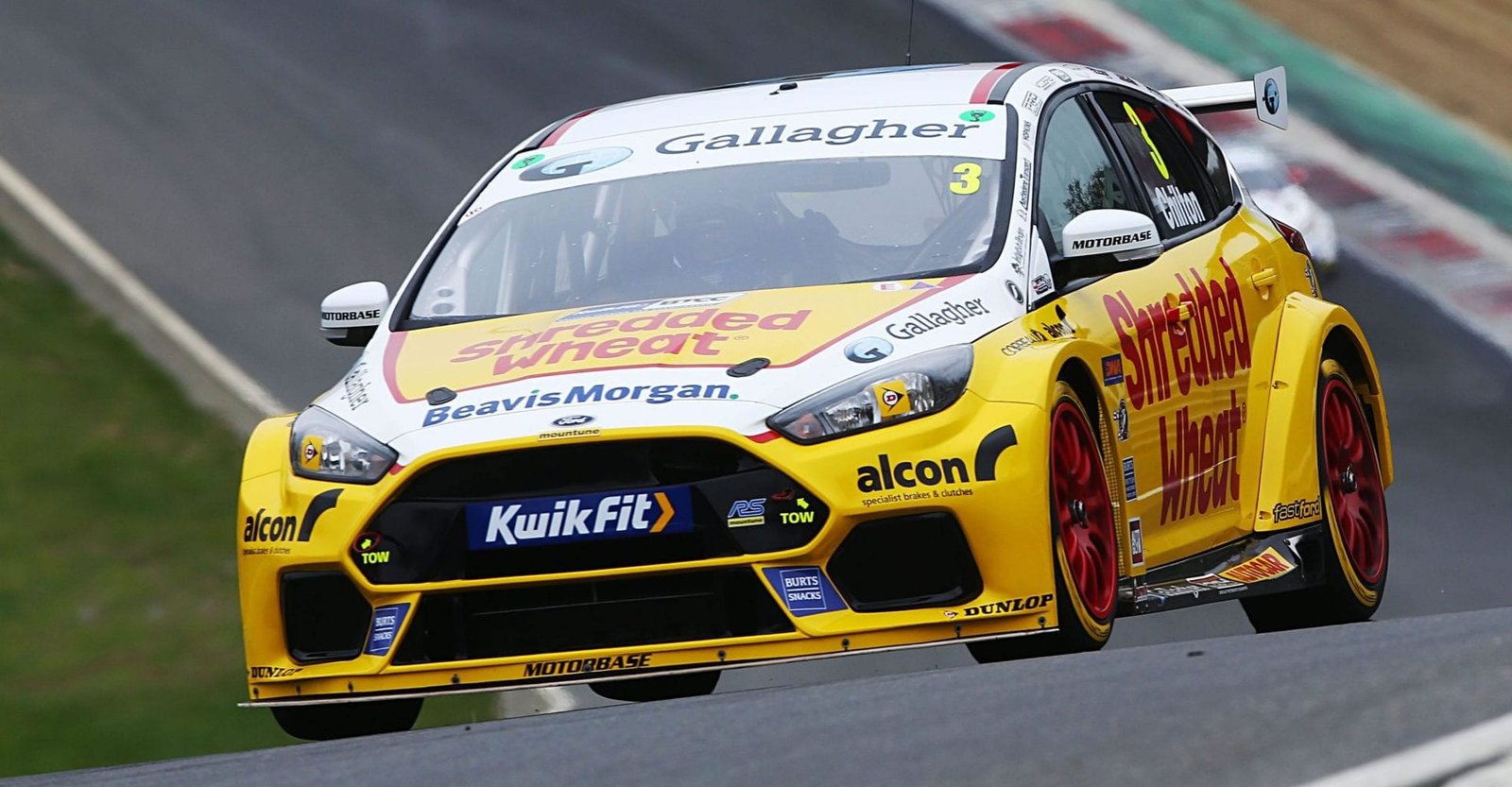

- All, British Touring Cars, History
Ford’s Dominance in the British Touring Car Championship: Look Back
- By The Mad Ginger Scotsman
Introduction
The British Touring Car Championship series can be rightly proud of its heritage that dates back to 1957/58.
The man credited with the idea for a national championship for saloon cars is Ken Gregory, who was also well known in motor racing circles as the manager of Stirling Moss.
In the early to mid-Fifties, saloon car racing achieved high popularity among the public and competitors alike, however, no organised series or championship existed in which the leading manufacturers at the time, recovering from the post-War years, could display the prowess of their new range of passenger cars.
Ford has been a major player in the series since its inception, ranging from the early days of the Anglia and Cortina to the more recent dominance of the Focus RS returning after 25 years in 2019.
Ford cars have racked up an impressive number of wins as of 2023, Ford sits at the top of the manufacturer’s leaderboard with 264 championship wins in the BTCC, which is a very impressive record to hold, compared with second-placed Honda holding 196 championship wins and third placed Vauxhall with 138 championship wins.
In this blog post, we’ll look back at Ford’s BTCC history and some of the most memorable moments from the series, including the role of privateers, as well as some lesser-known facts about Ford’s BTCC history.
The Early Years in the British Touring Car Championship (BTCC)
The BTCC began in 1958, with a variety of models considered for the sport. In the early days, factors such as ease of tuning, handling, and reliability determined which models were preferred for racing.
In the smallest capacity class, the Austin A35 and Ford Prefect were popular, while in the larger capacity classes, the 3.4 Jaguar and Ford Zephyr were often used. In 1959, Jeff Uren won the championship while driving a Ford Zephyr.

In the 1960s, muscle cars and the Ford Cortina began dominating the BTCC. In 1961, US driver Dan Gurney raced a V8 Chevrolet Impala, and by 1963, Ford Galaxies were competing in the UK championship. The Ford Mustang and Ford Falcon were also popular. Jack Sears won the championship in 1963, driving a Ford Lotus Cortina, and a Ford Galaxy. Jim Clark won in 1964, driving a works Lotus Cortina, and Roy Pierpoint won in 1965, driving a Ford Mustang.
Ford was also heavily involved in the early years of the series, with the Anglia model being a strong competitor. Drivers such as Jack Sears and John Whitmore achieved multiple wins and podium finishes while driving the Ford Anglia, they were considered among the top drivers of their era, helping to establish the Ford Anglia as a competitive and successful racing car in the BTCC.
The Escort Era
Ford was a prominent and successful participant in the British Touring Car Championship (BTCC) throughout the 1970s, 1980s and early 1990s, with iconic models such as the Ford Escort and Sierra achieving multiple wins and championships. In the 1990 season, Ford’s RS500 model driven by Robb Gravett won the overall championship and helped establish Ford as one of the top teams in the series.
In 1991, with the introduction of a new 2-litre, single-class formula, Ford officially returned to the BTCC with the Sierra RS Cosworth and Escort RS Cosworth models. Despite not having a runaway win, the drivers achieved some notable results throughout the season.
In 1992, Ford continued to participate in the BTCC under TOCA management, introducing the new Ford Mondeo model. Despite the car not being fully developed yet, Ford drivers achieved notable results and win throughout the season, particularly with Paul Radisich.
-
 Hooded Sweatshirt Slammed Fez ST Large Rear Design£51.57 – £58.85Price range: £51.57 through £58.85
Hooded Sweatshirt Slammed Fez ST Large Rear Design£51.57 – £58.85Price range: £51.57 through £58.85 -
 Ford Fam Hoodie with Large Text Logo£46.54 – £53.28Price range: £46.54 through £53.28
Ford Fam Hoodie with Large Text Logo£46.54 – £53.28Price range: £46.54 through £53.28 -
 Hooded Sweatshirt – Original Ford Fam Logo Large on Rear£46.54 – £53.28Price range: £46.54 through £53.28
Hooded Sweatshirt – Original Ford Fam Logo Large on Rear£46.54 – £53.28Price range: £46.54 through £53.28 -
 Copy of Ford Fam Hoodie – Vertical Logo Design 2£46.54 – £53.28Price range: £46.54 through £53.28
Copy of Ford Fam Hoodie – Vertical Logo Design 2£46.54 – £53.28Price range: £46.54 through £53.28
In 1993, Ford officially returned with a factory team and campaigned the Mondeo model and achieved notable wins, including Paul Radisich’s maiden and Ford’s 200th BTCC victory at the Brands Hatch GP circuit.
In the later years, Ford models such as the Ford Focus and the Mondeo continued to campaign in the series, achieving a good level of success with notable wins and podium finishes. Ford teams continued to feature prominently in the series and received factory support.
The Mondeo and Focus Years
Ford’s presence in the British Touring Car Championship was prominent during the 1990s and 2000s. The company’s models, such as the Mondeo and Focus, were the touring cars of choice and built on the success of the Escort. The Mondeo was a particularly dominant model in the series during the 1990s, winning multiple championships in the hands of drivers such as Alain Menu and Anthony Reid. The model remains one of the most successful touring cars in the history of the BTCC.
In 2000, Ford driver Anthony Reid won the drivers’ championship and Ford team, West Surrey Racing (WSR) won the teams’ championship, both were using a Ford Mondeo.
In the early 2000s, the BTCC saw a change in technical regulations and a shift in manufacturers participating in the series. Ford was not present as an official factory team and did not have any models participating in the BTCC.

The Ford Focus model replaced the Mondeo in the early 2000s and continued Ford’s winning streak in the series. It achieved multiple wins and championships in the hands of drivers such as Colin Turkington, Matt Neal, and Jason Plato. Both the Mondeo and the Focus models were considered to be well-balanced and competitive touring cars that were able to adapt to the constantly-changing regulations of the BTCC. Ford’s dominance in the 1990s and 2000s cemented the company’s reputation as a major player in the series and established a new era of competitiveness and excitement in the BTCC.
In the following years, Ford’s results in the BTCC were consistent with multiple wins and podium finishes, but they were not able to repeat the success of 2000. By the 2010s, Ford had withdrawn factory support from the series and their presence in the BTCC became less prominent. Ford’s last factory-supported team, WSR, stopped fielding Ford cars in the championship and switched to BMW.
Current Generation Focus RS
The current generation of Ford Focus RS made its return to the British Touring Car Championship in 2019, having been developed by the Motorbase Performance Team and featuring a distinctive body kit and livery to go with it.
The team had previously been running the Focus ST from 2012 until 2019, when the RS was allowed to compete again after some 25 years, due to the famous and dominant elder brother, the Sierra Cosworth RS500, dominating the championship for years. This saw the rules changed and the end of the RS badge in touring car history; since then, there have been very few RS models competing in the competition.

In its debut season, the Focus RS struggled to match the pace of the front-running cars, and the results were mixed. However, it still managed to achieve multiple wins and podium finishes throughout the season. Ford’s Focus RS was able to secure wins in several rounds and get on the podium several times. The car was also able to achieve strong results in the latter part of the season, indicating that the team had made progress in developing the car.
In its return season, the Ford Focus RS performed better, achieving more wins and podium finishes for the manufacturer. The car has been able to make progress and adapt to the BTCC regulations, becoming a more competitive car. Even though it hasn’t been able to secure a title yet, the Focus RS has become a fan favourite and has helped bring new fans to the series.
The Role of Privateers:
In the British Touring Car Championship, factory teams have traditionally had a significant advantage over privateer teams, in terms of resources and support, However, privateer teams have still managed to make a significant impact on the series over the years.
Egg Sport, as well as other privateer teams, were able to achieve success in the BTCC by maximizing the performance of their cars and making the most of their limited resources. These teams often had to work with older or less developed cars, which made their achievements all the more impressive.
Many privateer teams have also competed with Ford cars over the years, and their efforts and achievements should not be overlooked. They were able to compete against factory teams, who had much more resources and support but still achieved remarkable results. These teams helped make the BTCC more exciting and competitive. They also helped to promote the Ford brand in the series and contributed to Ford’s legacy in the BTCC. The privateers played an important role in the series, and their achievements deserve recognition.
Lesser-Known Facts

One lesser-known fact about Ford’s history in the British Touring Car Championship (BTCC) is that the company actually withdrew from the series for a period of time in the 1980s. After several years of success in the 1970s with the Ford Escort model, Ford withdrew its factory team from the BTCC in 1983. This was due to several reasons, such as changes in the regulations, the economic situation of the company, and the decision to focus on other motorsports programs.
Despite this absence, Ford has an outstanding record in the BTCC and has won more championships than any other manufacturer. Ford’s legacy in the BTCC is long and storied, and the company has been responsible for many of the most iconic and memorable moments in the series’ history.
Additionally, Ford’s Escort model holds the record for the most wins by a single model in the BTCC with 86 wins over the years. The Escort’s success in the 1970s helped establish Ford as a major player in the BTCC, and it remains one of the most iconic and successful touring cars in the history of the series. The model’s dominance on the track, its versatility to adapt to regulations, and its great results made it a true legend in BTCC history.
Conclusion
Overall, Ford’s racing history in the British Touring Car Championship is a testament to the automaker’s commitment to motorsports and its ability to build competitive and reliable touring cars. The brand’s legacy and achievements will always be an important part of the history of the series, and they continue to be celebrated by fans and enthusiasts of the sport.
The British Touring Car Championship remains a highly competitive and exciting series, and Ford’s presence in the series continues to make a significant impact on its history and development.
Ford’s competitiveness, reliability and adaptability have made its cars and drivers an essential part of the championship, and its achievements stand as a testament to its greatness.
Resources
BTCC – https://www.btcc.net/history/in-depth/1958-1990/
Motorbase Performance – https://motorbaseperformance.co.uk/wp-content/uploads/2019/05/FAF393news.pdf
https://motorbaseperformance.co.uk/about-the-team/
Touring Car Racing.net – http://www.touringcarracing.net/Pages/1964%20BSCC%20Class.html
Wikipedia “Roger Clark” – https://en.wikipedia.org/wiki/Roger_Clark#Career_record
Sierra Cosworth RS 500 pics – https://www.goodwood.com/grr/race/historic/2014/12/eggenberger-sierra-rs-cosworth-tribute-to-a-legend/
Motorbase Focus RS Picture – https://www.touringcartimes.com/2019/01/10/motorbase-confirm-revised-driver-pairing-2019/
Related Posts


James Deane: The Life of a Drift Champion
Join Our Waiting List
We are set to launch a vehicle giveaway in the next few months. If you think this is definitely something youd be interested in Join the Waiting List...
